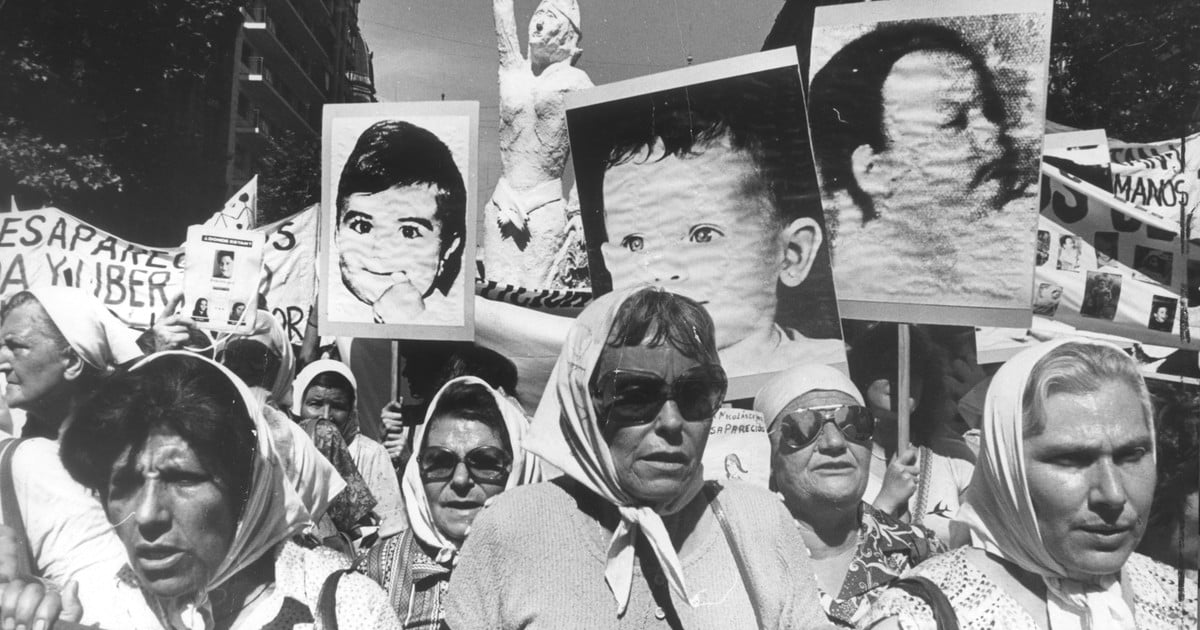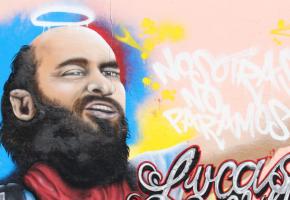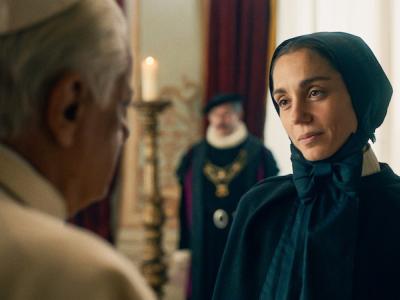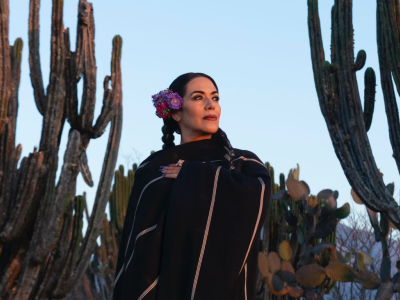Between 1976 to 1983, over 9,000 opponents of the military regime were abducted from their homes or off the streets by the authorities and never seen again. Many were young - school kids, university students, factory workers, trades unionists and professionals - and more than 30% were women, including pregnant women. They were sexually abused and gang-raped before being made to give birth and then murdered.
When their parents went to police stations looking for them, they were told that, according to public records, these people never existed; they were simply 'disappeared' along with their babies. Often they were threatened, afraid to even ask after their loved ones. Slowly, after democracy returned, it was revealed that these babies born in captivity were given away to families, often military families. But these children were never told their true identity.
Only a few brave grandmothers refused to stop asking what happened to these babies. They began to meet in the central square Plaza de Mayor in Buenos Aires and walk in a circle, as soldiers cursed, spat, and intimidated them. They created a DNA bank so that, over the years, adopted children who began to suspect they were children of disappeared parents could approach the Abuelas and become reunited with their true grandparents.
So far, about 130 of the 500 kidnapped children have been found. Through A worldwide campaign #ArgentinaTeBusca, anyone with doubts about their identity can take a test at the nearest Argentine consulate. The sample will then be sent to the National Genetic Data Bank in Buenos Aires.
The president of the Abuelas, Estela Carlotto, who is 92 years old, found her grandson Guido in 2014, 36 years after her daughter Laura was killed by the military in 1978. In Abuelas Cristian Arriaga interviews the women who kept hope alive in the darkest of times and, as they become fewer and fewer, are more cherished than ever as a reminder of who Argentina is today.
LatinoLife: In Abuelas, we see a very raw and personal account of the Abuelas de Plaza de Mayo. How did you manage to encourage the Abuelas to share their personal stories, especially considering that many of them had already told the stories of their struggle many times before?
Cristian Arriaga: The connection I built with the Abuelas was intuitive. I did not do much formal research before filming, as is usually the case for documentaries. When I first put forward the idea for the film, many people gave me stacks of books and interviews but I chose to put them aside. I wanted to arrive at the set with a blank canvas. I am not a recovered grandchild myself, and I have nothing to do with this experience, other than my own civic responsibility as an Argentine.
LL: Why did you choose to focus on the grandmothers and to not include their recovered grandchildren in the film?
CA: What inspired me to make the film was that my own maternal grandmother was the most important person in my life. We had a very loving relationship. The Abuelas de Plaza de Mayo helped to create the meaning of being a grandmother in Argentina. In the end, I had two hours of footage instead of an hour and a half - but I didn’t mind it being too long, as there are fewer and fewer Abuelas left so every word is valuable. This footage will become even more useful in the future. We are now hoping to create a sequel that will tell the story of the Nietos (grandchildren).
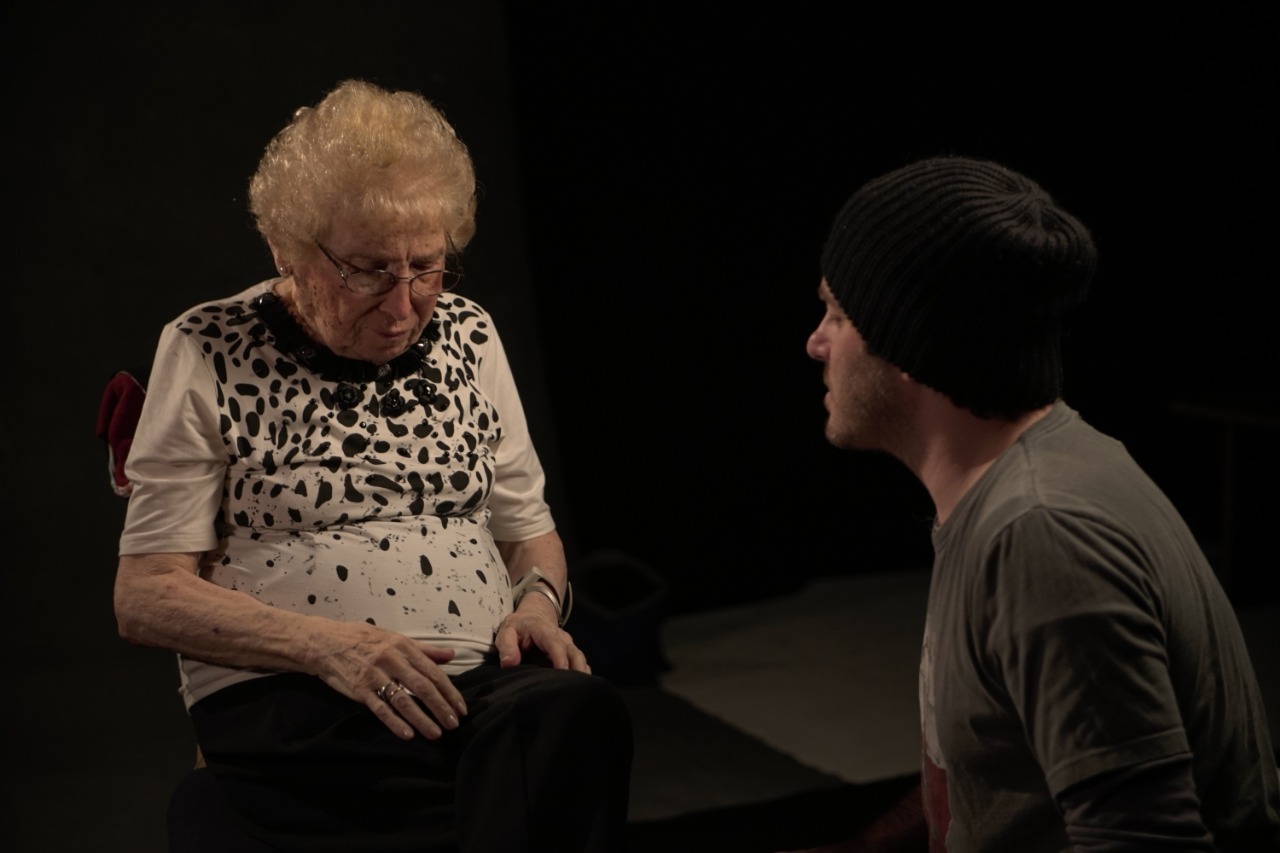
LL: The end of the film features a beautiful, original song called Abuela. Can you tell us a little bit more about this song?
CA: I composed this song before the idea of making this film even came to my mind. I remember that I wrote the song when I was sat in my grandmother’s armchair in my home town. I wrote the song from the point of view of a grandchild in general, rather than a recovered grandchild. The song is about a grandchild who longs to meet his grandmother and asks her to reach out her hand. Many recovered grandchildren have told me that before taking the step to go to the Abuelas de Plaza de Mayo and tell them that they had doubts about their true identity, they too had butterflies in their stomach similar to the feeling of being in love. Without the work of the Abuelas, many people would have never stepped forward. The grandmothers did not look for their stolen grandchildren out of hatred or vengeance. They looked for them out of love.
I asked some renowned Argentine musicians, León Gieco, Gustavo Santoalla and Raúl Porchetto to sing. The grandson of Estela de Carlotto from the Abuelas de Plaza the Mayo, Ignacio Montaya Carlotto, is playing the keyboard. They all agreed to play the song in honour of the Abuelas de Plaza de Mayo.
LL: What do you think the future of the Abuelas de Plaza de Mayo will hold?
CA: I filmed the interviews before the pandemic. Now, unfortunately only seven out of the twelve Abuelas that are featured in the film are still alive. I know that in fifteen years, the film will have a lot more historic value. We Argentines have a very strange relationship with the future of the Abuelas de Plaza de Mayo because they are so deeply significant. Now, people are beginning to ask what will happen if there is a male president of the Abuelas organisation in the future, since many of the recovered grandchildren are assuming responsibilities for running the civil association. We know that no one will ever be able to take over the place of the Abuelas but the organisation must continue because there are many more stolen grandchildren out there that are yet to be found.
In the case of many couples who were kidnapped, their parents and families did not even know that they were together or expecting a child. These grandchildren were never searched for. Some women did not even know that they were pregnant. The Abuelas helped to create a National Genetic Data Bank to help to match stolen grandchildren with their biological grandmothers. However, some people go and do the tests only to be told that their DNA does not match up with any of the Abuelas. This is because nobody is actually looking for them.
LL: What are your plans for 2023 since this year marks the 40-year anniversary of Argentina’s transition to democracy?
CA: My intention is to try to show the film to as many people as possible in Europe, North America, and throughout the world. That way, we can encourage grandchildren in the Argentine diaspora who have doubts about their identity to connect with the Abuelas de Plaza de Mayo. Having said that, next year will be a very difficult year for us in Argentina with the inflation crisis. We also have a general election scheduled for the end of October. The 40-year anniversary of the re-establishment of democracy in Argentina will coincide with the beginning of the next presidency. It is very difficult for us to plan ahead!


